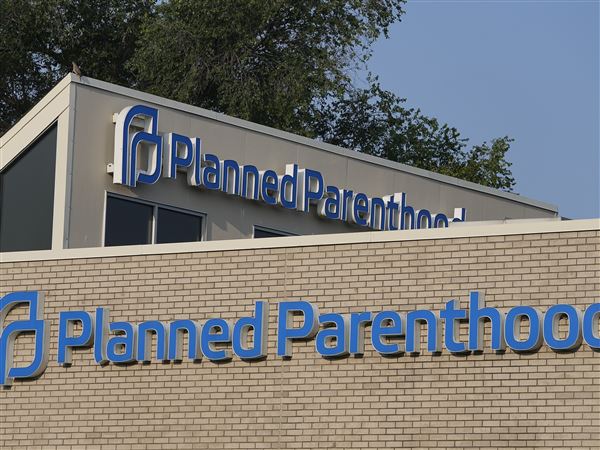Health
Planned Parenthood Warns of Health Care Crisis in Toledo Area

Legislation aimed at restricting Medicaid reimbursements for health care organizations that provide abortion services threatens to exacerbate the existing shortage of health care providers in the Toledo area. This warning comes from Planned Parenthood of Greater Ohio, which asserts that the bill could have dire consequences for access to essential health services in the region.
The proposed legislation, currently under consideration in the Ohio Statehouse, would specifically target organizations that offer abortion services, effectively cutting off their funding through Medicaid. Advocates for the bill argue it aligns with their stance against abortion, while critics highlight the potential negative impact on overall health care access. According to Planned Parenthood, this move could further diminish an already limited pool of health care providers in Toledo, where many residents depend on these services.
Columbus lawmakers are facing increasing pressure to address the health care provider shortage, which has been a persistent issue in the area. The organization reports that access to reproductive health care, routine check-ups, and preventive services could be severely affected if the legislation passes.
In a statement, Jessica L. Rittenhouse, Director of Public Affairs for Planned Parenthood of Greater Ohio, emphasized the critical role that these health care organizations play in ensuring comprehensive care for low-income individuals and families. “Cutting funding from organizations that provide vital health services will not only hurt those who rely on us for care but will also strain an already overburdened health care system,” she said.
The Toledo area has been grappling with a shortage of health care providers for several years. According to the American Academy of Family Physicians, Ohio ranks among the states with the highest need for family physicians, particularly in rural and underserved urban areas. The proposed defunding could discourage current providers from continuing their services and deter new professionals from entering the field, exacerbating the health care crisis.
Medicaid plays a crucial role in funding health care services for millions of Americans, particularly those in need. The proposed bill, if passed, could lead to a significant reduction in the number of health care facilities available to serve low-income individuals in Toledo. Planned Parenthood estimates that such a defunding move would affect thousands of patients who rely on their services for essential health care needs.
The legislation is set to be debated in the coming weeks, and advocacy groups are mobilizing to raise awareness about the potential implications. Community leaders and health care advocates are urging lawmakers to reconsider the impact of such measures on health care access.
As discussions continue, the future of health care services in Toledo hangs in the balance, with advocates warning that the proposed legislation could lead to a health care crisis that affects the most vulnerable populations in the region. The situation underscores the importance of comprehensive health care access and the need for policies that support, rather than hinder, health care providers.
-

 Lifestyle3 months ago
Lifestyle3 months agoLibraries Challenge Rising E-Book Costs Amid Growing Demand
-

 Sports3 months ago
Sports3 months agoTyreek Hill Responds to Tua Tagovailoa’s Comments on Team Dynamics
-

 Sports3 months ago
Sports3 months agoLiverpool Secures Agreement to Sign Young Striker Will Wright
-

 Lifestyle3 months ago
Lifestyle3 months agoSave Your Split Tomatoes: Expert Tips for Gardeners
-

 Lifestyle3 months ago
Lifestyle3 months agoPrincess Beatrice’s Daughter Athena Joins Siblings at London Parade
-

 World3 months ago
World3 months agoWinter Storms Lash New South Wales with Snow, Flood Risks
-

 Science4 months ago
Science4 months agoTrump Administration Moves to Repeal Key Climate Regulation
-

 Science2 months ago
Science2 months agoSan Francisco Hosts Unique Contest to Identify “Performative Males”
-

 Business3 months ago
Business3 months agoSoFi Technologies Shares Slip 2% Following Insider Stock Sale
-

 Science4 months ago
Science4 months agoNew Tool Reveals Link Between Horse Coat Condition and Parasites
-

 Sports3 months ago
Sports3 months agoElon Musk Sculpture Travels From Utah to Yosemite National Park
-

 Science4 months ago
Science4 months agoNew Study Confirms Humans Transported Stonehenge Bluestones









